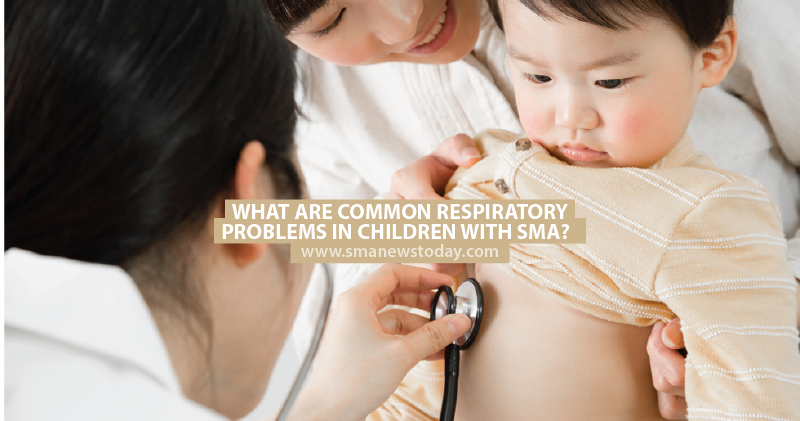What Are Common Respiratory Problems in Children With SMA?

It’s known that children with spinal muscular atrophy (SMA) have a number of breathing issues, which are caused by weakened chest muscles. These are the most common respiratory problems for children with SMA.
MORE: Seven pieces of respiratory equipment needed for a child with SMA
Lung underdevelopment
Usually, children’s lungs grow and develop over time. However, children with SMA have weak intercostal muscles that aren’t strong enough to help with the lungs’ development. As they grow, their lungs and chest muscles will stay underdeveloped.
Weak cough
When someone has a breathing problem that causes mucus production, the human body will usually develop a strong cough in order to clear the airways of those secretions. The problem for children with SMA is that their muscles are too weak for a strong cough. If the cough is not strong enough, that mucus will be trapped in the lungs and make breathing much more difficult. The mucus will continue to block the airways, which may lead to a collapsed lung. It may also lead to decreased levels of oxygen in the blood.
Pneumonia
If the child can’t expel secretions and they stay trapped in the lungs, it creates the perfect condition for bacteria to develop. Bacteria may lead to pneumonia, meaning that the lungs are inflamed or infected. The two most common ways pneumonia can develop in a child with SMA are either through an upper respiratory infection or if the child aspirates food or liquids.
Viral respiratory infections
Viral respiratory infections can be lethal. One particular type of infection, respiratory syncytial virus (RSV), looks like a really bad cold, and for children who don’t have SMA, that’s all it is. However, if a child with SMA contracts RSV, it can become far more serious, often resulting in severe breathing problems and maybe even hospitalization.
It’s important to instill household habits to prevent this type of infection. Even regular colds and the flu can turn quite serious for children with SMA. Remind other children and family members to avoid contact with any SMA patient if they’re sick. Basic things like keeping the house clean and thorough hand-washing can go a long way to prevent viral infections.
Remember to talk to a health care specialist about prevention measures and treatment options.
Swallowing problems
Children with SMA often have problems swallowing, which can lead to an aspiration of food into the lungs. They also have issues with reflux and heartburn. Because of the difficulties swallowing caused by weak muscles, children with SMA may end up inhaling what the reflux brings up from the stomach into the lungs while they’re breathing.
Sleep problems
Muscles usually relax while we sleep, including those responsible for breathing. Children with SMA may end up experiencing hypoventilation, which means they’re not getting enough oxygen or expelling enough carbon dioxide to keep their body healthy. Hypoventilation during sleep is often one of the earliest signs of breathing difficulties in SMA.
MORE: Caring for a child with SMA when they have a cold
SMA News Today is strictly a news and information website about the disease. It does not provide medical advice, diagnosis or treatment. This content is not intended to be a substitute for professional medical advice, diagnosis, or treatment. Always seek the advice of your physician or other qualified healthcare providers with any questions you may have regarding a medical condition. Never disregard professional medical advice or delay in seeking it because of something you have read on this website.







